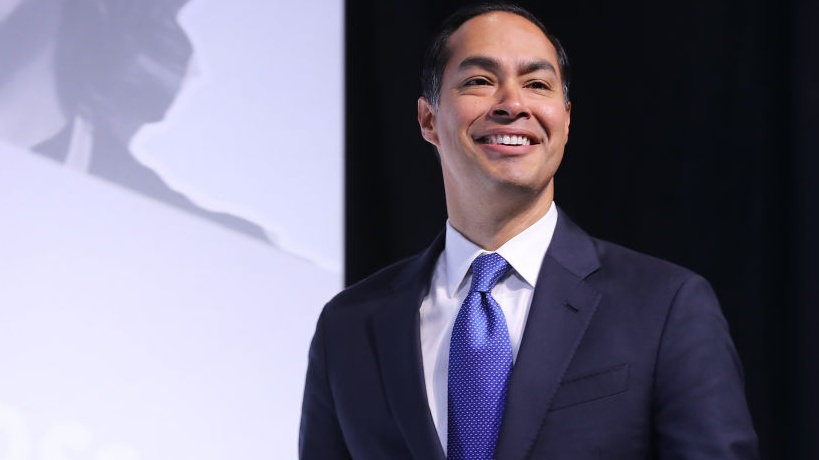Former Housing and Urban Development Secretary Julian Castro suggested the order of the presidential primary states should be changed during an interview on MSNBC on Sunday.
The Democratic presidential hopeful argued Iowa and New Hampshire were not demographically representative of the full United States, and the dynamics in the race for president should be set by more diverse populations.
The comments came following reports Castro had begun cutting down on the number of staff in New Hampshire as the campaign battled fundraising hurdles.
I was asked today in Iowa about the order of our primaries. I appreciate how seriously Iowa & New Hampshire take their role as first-in-the-nation.
But we’ve changed in the 50 years since order was established—and I believe it’s time our primaries reflect our nation’s diversity. pic.twitter.com/mY0EvnhXNr
— Julián Castro (@JulianCastro) November 11, 2019
"I don't believe we're the same country we were in 1972. That's when Iowa first held its caucus, and by the time we have the next presidential election in 2024, it'll have been more than 50 years since 1972," Castro said in his MSNBC interview. "Our country's changed a lot in those 50 years.”
Party leaders in the states in question did not take kindly to their roles in the process being questioned. New Hampshire Democratic Party Chairman Ray Buckley fired back at Castro and the fundraising challenges his campaign has faced.
“I can imagine [Castro] is frustrated but blaming his campaign’s challenges on the voters of Iowa and New Hampshire is a bit much,” Buckley said to Fox in response to Castro's statement.
Even fellow candidates have recently come out against Castro's comments, like South Bend, Indiana Mayor Pete Buttigieg — who said the states Nevada and South Carolina were the balance needed for the lack of diversity in the first two states.
2020 Watch: Asked about @JulianCastro call for reordering of the primary calendar due to lack of diversity in NH and Iowa, @petebuttigieg tells @foxnewspolitics
@seacoastonline “all four early primary states really creates that balance” #nhpolitics
#iacaucus
#Petebuttigieg
pic.twitter.com/MFtMrmm4yh— Paul Steinhauser (@steinhauserNH1) November 11, 2019
“I think the role of all four early primary states really creates that balance and makes sure candidates have to visit different kinds of states and speak to diverse constituencies,” Buttigieg said to Fox on Monday. "But I really do value the special role that New Hampshire plays."
Castro is not one of the candidates who have qualified for the Democratic debate at Tyler Perry Studios in Atlanta on November 20.

